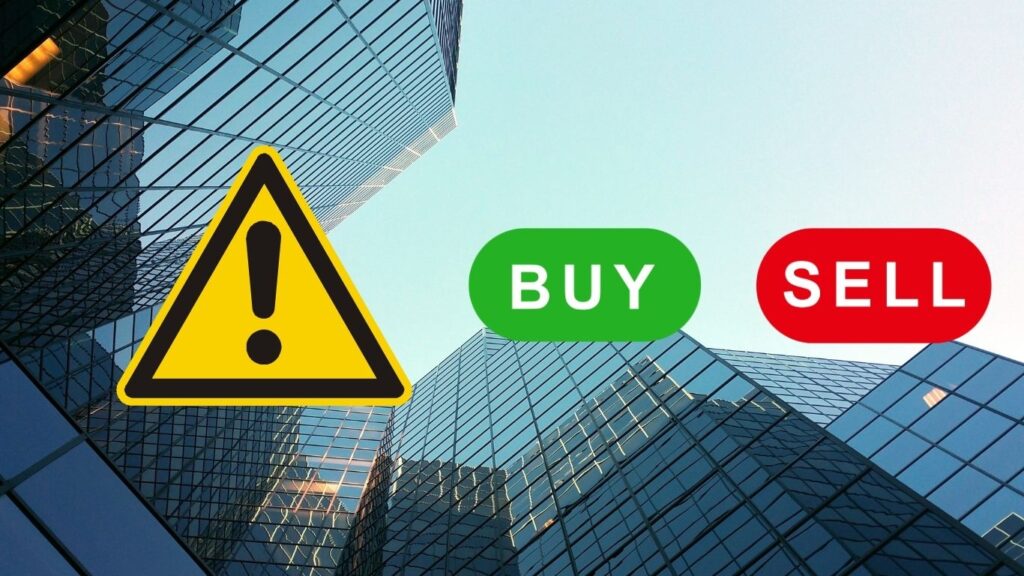When a company’s stock is delisted, it can no longer be traded on the stock exchanges (NSE or BSE). However, if you own stocks of that company, you still retain your shareholder status and can sell your holdings to the over-the-counter market. But, you’ll need to find an interested buyer outside the stock exchange.
As you may have guessed from the paragraph and title above, today’s topic is stock delisting and its impact on retail investors. In this guide, we’ll explore the meaning of stock delisting in the share market and provide guidance on what to do if you’ve purchased shares of a delisted company.
Table of Contents
ToggleWhat Is Stock Delisting?
When a company’s share is permanently withdrawn from the stock exchange, it is referred to as delisting. This can happen when a company ceases operations, declares bankruptcy, merges, does not meet listing requirements, or seeks to become private.
Once a company is delisted, its shares can no longer be traded on the stock exchange. In simple words, retail investors cannot buy or sell shares of delisted companies on platforms like Zerodha, Ange One, Sharekhan, Groww, Upstock, Dhan, ICICIDirect, etc.
Delisting results in the removal of the company from the National Stock Exchange (NSE) and Bombay Stock Exchange (BSE).
Market regulators, securities, and the Exchange Board of India (SEBI) govern the stock delisting process.
Also Read: ChartIQ Vs TradingView: Which Is Better for Traders?
What Happens To Shareholders When A Company Delisted?
If a company is delisted from the stock exchange (share market), you can’t sell its shares on NSE or BSE.
However, if you own shares in that company, you’re still a shareholder and can sell them outside the exchange.
If you bought stocks of a particular company and it’s delisted from the stock exchange for some reason (voluntary or involuntary), then you cannot sell it on NSE or BSE, but you’re still a shareholder in that company.
How To Sell Delisted Shares?
When a company gets delisted from the stock market, it means its shares are no longer available for buying or selling on the stock exchange.
But if someone wants to buy shares of that company, you can still sell yours through a different market called the over-the-counter market.
Sometimes, if the company decides to buy back its own shares, you can also sell your shares back to the company owners. However, if the company chooses to delist itself from the stock exchange on its own, it might complicate things regarding selling your shares during a buyback.
Why Does A Stock Delist From the Exchange?
Until this point, you have gained sufficient understanding regarding stock delisting and the actions to take as a company shareholder.
Now, let us look at the reasons behind a stock being delisted from an exchange. Essentially, there are two primary types of stock delisting:
- Voluntary Delisting
- Involuntary Delisting
What Is Voluntary Delisting?
Voluntary delisting occurs when a listed company decides to permanently remove its securities from a stock exchange.
Companies may choose to delist by purchasing all their shares or by moving to an over-the-counter (OTC) market while remaining in compliance with the exchanges.
Advantages include capital savings, strategic moves, and the opportunity for companies to acquire their own undervalued shares.
However, there are also regulatory concerns related to listing requirements.
Investors can benefit from companies that voluntarily delist to go private and cash out shareholders.
What Is Involuntary Delisting?
Involuntary delisting occurs when a listed company’s shares are forcibly removed from the stock exchange due to reasons such as non-compliance with listing guidelines, delayed report filings, or consistently low share prices.
Shareholders still own the shares but cannot trade them on the stock exchange. They have the option to sell the shares on the over-the-counter market.
In such cases, promoters are usually required to repurchase the shares from existing shareholders at a price determined by an independent evaluator.
Also Read: Zerodha vs Upstox: A Comprehensive Comparison of User Experience, Trading Features, Pricing, and More
Can A Delisted Share Come Back?
Yes, if SEBI and other market regulators allow, then the delisted company removed from the stock market can come back. But, to get listed again in the stock exchange, the company has to follow certain rules.
- Re-listing of voluntarily delisted stocks: There is a five-year cooling period for re-listing on the stock exchange if a share is voluntarily delisted. This means voluntarily delisted stocks can only be re-listed after 5 years.
- Re-listing on involuntary delisted stocks: If a stock is involuntarily delisted from the stock exchange, it can only be re-listed after 10 years.
Do I Lose Money If A Stock Is Delisted?
(SEBI) Security and Exchange Board of India and other market regulators have tough rules. If a company gets delisted, the people who started it (called promoters) have to buy back the shares. An independent expert decides how much the shares are worth.
But when a company removes its shares from the stock market, how much they pay you for those shares is decided by someone else, not the company. This means there’s a chance you could lose money if the price they offer is lower than what you paid for your stocks.
Also, if a stock is taken off the stock market, you don’t necessarily lose all your money. But there’s still a possibility that you might lose some of it.
Now you understand what happens when a stock is removed from the stock exchange. A company that chooses to delist can buy back shares from investors through a process called book-building, or shareholders can keep their stocks until they find someone who wants to buy them.
What are the warning signs of a company facing delisting?
Certainly! When a company is at risk of delisting, there are several warning signs to watch out for:

- Share Price Decline: A significant drop in the company’s stock price can signal trouble. If the share price plummets, it may lead to delisting.
- Company’s Desire to Go Private: Some companies voluntarily choose to go private, especially when the costs of being publicly listed outweigh the benefits. Going private can be a precursor to delisting.
- Multiple Reverse Splits: Companies may execute reverse stock splits to increase their share price and avoid delisting. For instance, a 1-for-10 reverse split could raise the share price from 50 cents to five dollars per share.
- Questionable Financial Ratios: Failing to meet financial benchmarks set by the stock exchange (such as maintaining a minimum share price, financial ratios, and sales levels) can trigger delisting.
- Institutional Sell-Off: If institutional investors are rapidly selling off their shares, it could indicate underlying issues within the company.
- Corporate Governance Concerns: Poor corporate governance practices may raise red flags and contribute to delisting risk.
- Ignored Warnings: When a company repeatedly ignores warnings from the stock exchange regarding noncompliance with listing requirements, it may eventually face delisting1.
Conclusion
You can’t buy or sell delisted stocks through stock market platforms. Instead, you have to sell them through private transactions. But as a regular investor, I suggest keeping up with the company’s news and selling your stocks before they’re delisted.
